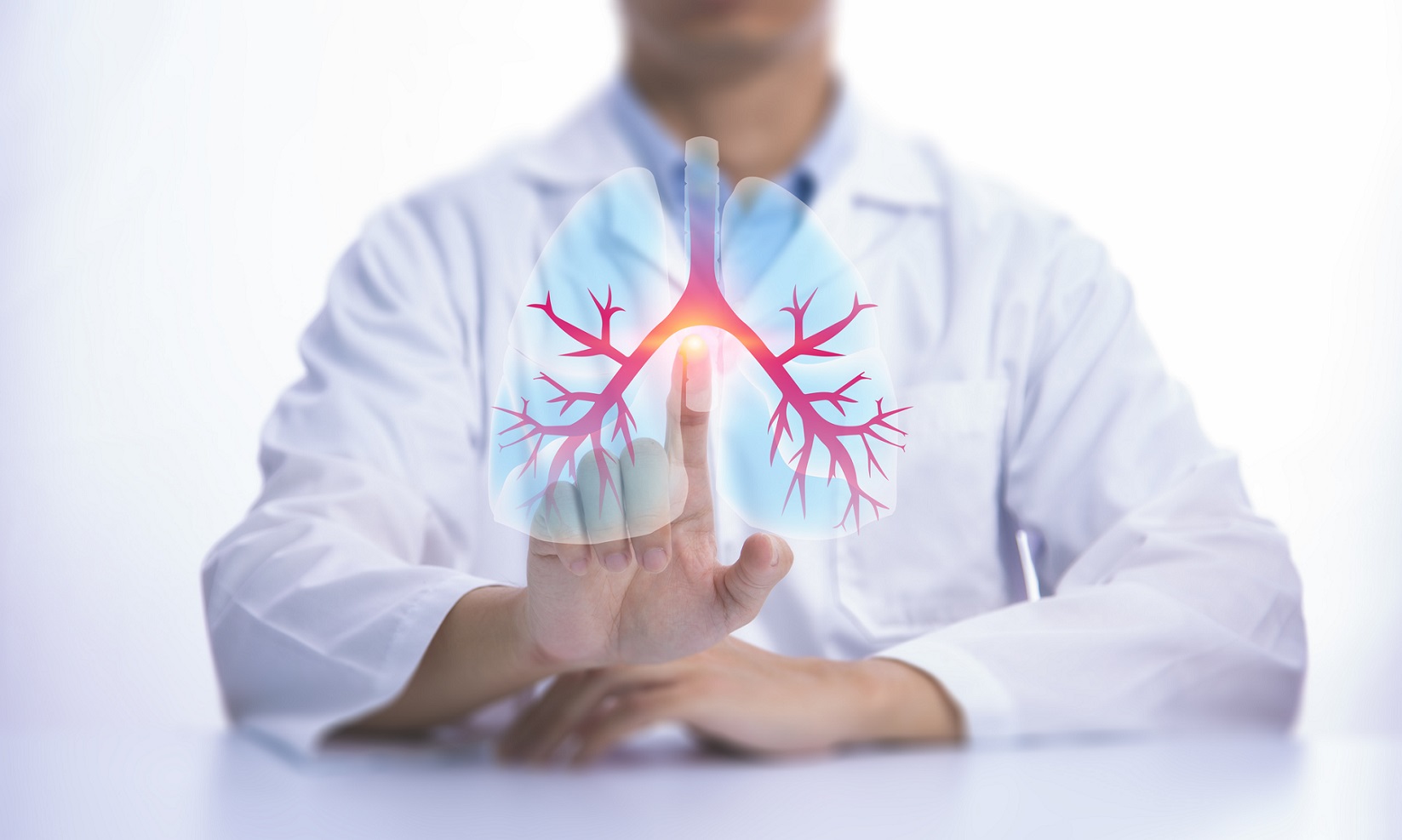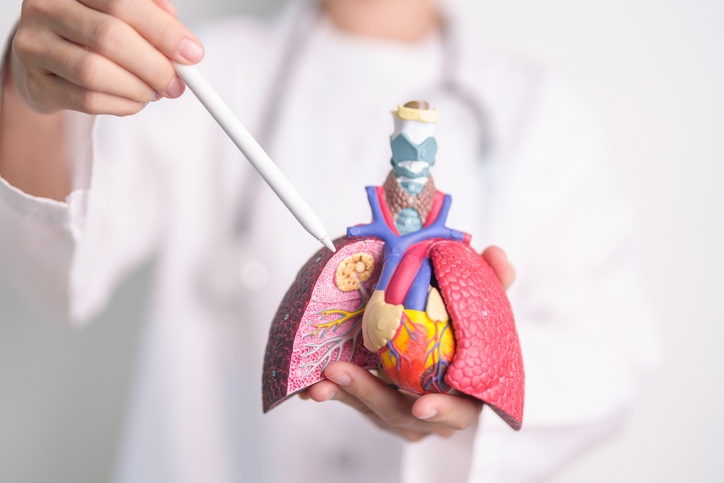Emphysema, a progressive form of chronic obstructive pulmonary disease (COPD), can severely limit...
Read More
Living with sarcoidosis can feel like navigating a maze of uncertainty, but you’re not alone. Inspira’s pulmonary specialists can help you reclaim every breath with compassionate care and progressive treatment options.
Sarcoidosis/Sarcoid is a multifaceted inflammatory disease characterized by the formation of granulomas, or small clumps of inflammatory cells, in various organs of the body. While its exact cause remains unknown, sarcoidosis may result from an abnormal immune response triggered by environmental factors, genetic predispositions or infections. Sarcoidosis primarily affects the lungs (pulmonary sarcoidosis) and lymph nodes, but it can also involve other organs, like the skin, eyes, liver and heart.
Sarcoidosis varies from person to person, and its symptoms depend on which organs are affected. The disease may cycle through periods of remission and flare-ups, where symptoms may worsen temporarily before improving again. For some, sarcoidosis may become chronic, while others affected may experience some resolution to their symptoms.
Some people with sarcoidosis may experience mild symptoms or even remain asymptomatic, while others may suffer from more severe complications. Symptoms can vary widely depending on which organs are affected, but they may include:
Diagnosing sarcoidosis requires a review of your medical history, physical examination and diagnostic tests. Imaging studies like X-rays, CT scans and MRIs help your doctor visualize affected organs, and tissue biopsies can confirm granuloma formation. Blood tests help assess organ function and rule out other potential issues. Since sarcoidosis varies greatly from person to person, these diagnostic tests help your doctor make an accurate diagnosis and develop individualized treatment plans to manage the condition and minimize its impact on your daily life.


Corticosteroids are anti-inflammatory drugs that can reduce inflammation and suppress the immune response in sarcoidosis. In cases where corticosteroids alone are ineffective or cause significant side effects, other medications that suppress the immune system may be prescribed to manage inflammation and symptoms.

In cases where other treatments haven't worked well, your doctor may prescribe biologic agents like tumor necrosis factor (TNF) inhibitors. These drugs target certain pathways in the body that cause inflammation and immune reactions, aiming to better control the disease and reduce symptoms that haven't improved with other medications.
At Inspira, we understand that sarcoidosis can look different from person to person, which is why our treatment approach is grounded in personalized care that addresses each patient’s unique needs. From diagnosis and tailored treatment plans to ongoing support and management, our multidisciplinary team works together to offer you the resources you need to effectively manage sarcoidosis flare-ups and improve your overall respiratory health. Navigating sarcoidosis can be challenging, but with the right care and support, you can effectively manage this condition and lead a fulfilling life.
Sarcoidosis can affect anyone, but certain factors may increase the risk, including genetics, environmental exposures like dust or chemicals and certain occupations such as firefighting or construction work. Avoiding known environmental triggers and maintaining a healthy lifestyle may help reduce the risk of developing complications.
Sarcoidosis can vary greatly in duration and severity. For some people, the condition may resolve on its own within a few years, while others may experience chronic symptoms or periods of remission and flare-ups throughout their lives.
While there are no specific dietary restrictions for sarcoidosis, maintaining a balanced diet rich in fruits, vegetables, whole grains and lean proteins can support your overall health and well-being. Some people may find that certain foods or beverages worsen their symptoms and may choose to avoid them.
Sarcoidosis is not contagious or infectious. It is a non-communicable disease caused by an abnormal immune response and is not spread through contact with affected individuals.
If you think you have sarcoidosis or have been diagnosed with it, it's essential to seek medical attention from a pulmonary specialist experienced in treating the condition. They can conduct a thorough evaluation and develop a personalized treatment plan tailored to your needs. Regular follow-up appointments are critical for monitoring the disease and adjusting treatment as needed.

Emphysema, a progressive form of chronic obstructive pulmonary disease (COPD), can severely limit...
Read More
Mouth taping is a practice that promotes nasal breathing during sleep, which may improve sleep...
Read More
Walking pneumonia is a mild but disruptive form of pneumonia with symptoms like a lingering cough...
Read More